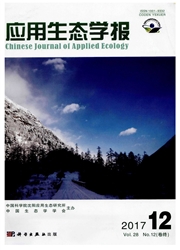

 中文摘要:
中文摘要:
根据系统科学理论,在科学界定人口城市化和土地城市化内涵的基础上,以甘肃省12个中心城市为例,分别构建了人口城市化和土地城市化质量的评价指标体系.使用耦合协调模型,从时间和空间两个维度对2005—2013年甘肃省人口城市化和土地城市化质量的综合发展指数以及耦合协调度进行测算.结果表明:人口城市化和土地城市化只能反映城市化进程的快慢,并不能衡量城市化发展的质量,单一的指标只能代表狭义的城市化发展水平.从时间序列来看,甘肃省土地和人口的城市化质量以及耦合协调水平呈现整体上升态势.总的来说,土地资源集约利用程度低仍是制约甘肃省城市化质量的关键因素.从空间格局来看,2013年,除兰州属于人口城市化质量滞后型,其他11个中心城市的土地城市化质量均不同程度地滞后于人口城市化质量.甘肃省12个中心城市的城市化质量整体上处于较低水平的协调阶段.
 英文摘要:
英文摘要:
According to the theory of system science,the paper took 12 central cities in Gansu Province as an example,and respectively built the quality assessment index system of population urbanization and land urbanization on the basis of scientific definition of the quality of population urbanization and land urbanization.Then the coupled coordination model was introduced to calculate the comprehensive development index and coupling coordination degree between quality of population urbanization and land urbanization by the dimension of time and space during 2005-2013.The results showed that population urbanization and land urbanization could only represent the speed of urbanization,it could not measure the quality of urbanization.Single index could only represent the urbanization development level in the narrow sense.Observed in time sequence,the quality and coupling coordination level of land and population urbanization in Gansu Province showed an overall rising trend.In general,the poorly intensive utilization of land resources was still the key factor restricting the quality of urbanization in Gansu Province.From the point of spatial pattern,in 2013,the quality of land urbanization lagged behind the quality of population urbanization to varying degrees in 11 central cities except Lanzhou,which belonged to the population urbanization lagging type.The urbanization quality of 12 central cities in Gansu Province was at an overall low coordinating stage.
 同期刊论文项目
同期刊论文项目
 同项目期刊论文
同项目期刊论文
 期刊信息
期刊信息
